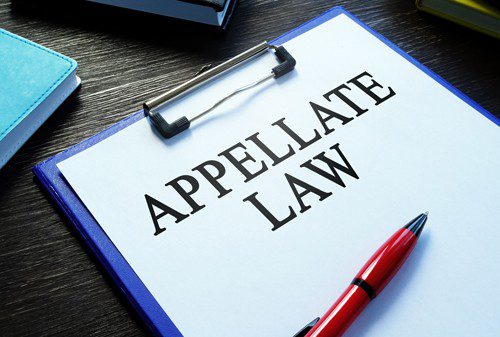
By Julie Ryan
The Nebraska Judicial Branch consists of trial and appellate courts. At the trial court level are the county and district courts. Nebraska appellate courts include district courts when appeals are taken from a county court, the Nebraska Court of Appeals, and the Nebraska Supreme Court. While this article is not exhaustive, here are some things to consider regarding appeals.
Appellate Court Jurisdiction
Not every court order or judgment is immediately appealable, even if you are dissatisfied. Nebraska appellate court jurisdiction requires entry of a “final order” or “final judgment” by the trial court. Those technical terms have a meaning set forth under Nebraska law. Determining whether an order is “final” cannot be overlooked. An appeal from a non-final order will result in the dismissal of the appeal for lack of jurisdiction. Thus, it is best to avoid the time and cost associated with a premature appeal.
To appeal a final order, a party must perfect the appeal. This generally involves filing a Notice of Appeal within thirty days after the entry of the final order, plus the deposit of a docket fee. The appealing party, or the appellant, would then need to ensure the transcript of any relevant hearing or trial and the exhibits offered during those proceedings are sent to the appellate court so it may meaningfully review the appeal.
Once an appellant has properly filed an appeal, any other party or appellee may pursue a cross-appeal by asserting one in their appellate brief. Other parties may direct additional documents be sent to the appellate court, as needed.
Briefs and Oral Argument
The parties will have an opportunity to file written briefs in which relevant facts and law are discussed in support of or in opposition to the appeal and/or cross-appeal. Briefs must comply with appellate procedural rules governing required content and formatting, etc. The appeal could be dismissed if the appellant does not file an initial brief on time.
Among other things, the Appellant Brief must include “Assignment of Errors” and “Argument” sections. In the Assignment of Errors section, the appellant must concisely list each error the appellant believes was made by the trial court along with corresponding issues for each. Assigned errors must be limited to issues actually raised to and decided upon by the trial court. The “Argument” section must separately discuss each assigned error. An appellant’s failure to assign errors may cause the appellate court to decline review of a certain issue or the whole appeal—alternatively, it may elect to review an issue or the appeal under a plain error standard of review (see below). Other rules pertain to other types of appellate briefs and motions.
After briefing deadlines pass, oral argument may be scheduled for the parties to appear before the judges or justices to verbally argue in support of or against an appeal and/or cross-appeal.
Standards of Review
An appellate court applies different standards of review to different types of cases and assigned errors. The standard of review controls the amount of deference the appellate court is to give to the trial court when reviewing the trial court order or judgment. For issues requiring more deference be afforded to the trial court, it is generally less likely for an appellant or cross-appellant to prevail on appeal. Therefore, a more deferential standard of review presents more risk.
For example, plain error is the most deferential standard of review, in which a trial court error will not be disturbed unless it is obvious and leaving the error uncorrected would cause immense damage to the judicial process.
In comparison, a de novo standard of review requires the appellate court to closely re-evaluate all evidence to reach its own independent conclusion on an issue.
Possible Outcomes of an Appeal
An appeal may be summarily dismissed for lack of jurisdiction or when the appellate court deems a detailed written opinion is not necessary for the dismissal. For detailed written opinions, the possible disposition can vary.
For example, a trial court order or judgment may be affirmed in whole or in part, could be affirmed but modified, reversed and dismissed in whole or in part, reversed and remanded back to the trial court for further proceedings or a new trial, or vacated and dismissed.
AKC Law has experience in pursuing and defending appeals on behalf of individuals and businesses alike. Additionally, Julie M. Ryan draws upon her past experience as a judicial law clerk for the Nebraska Court of Appeals to effectively handle appeals for AKC clients. Judicial law clerks are given the rare opportunity to work closely with judges, to help them analyze cases, and assist with research and writing their orders and opinions. Please call AKC law at 402.392.1250 or email Julie at [email protected] to learn more.

